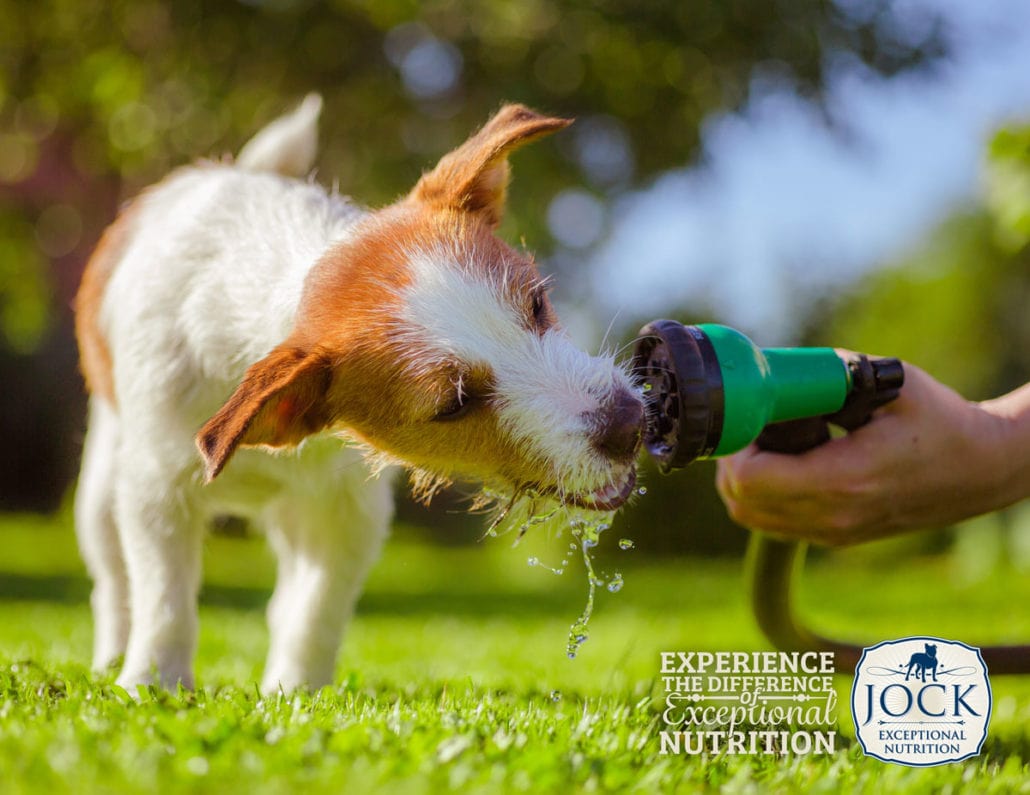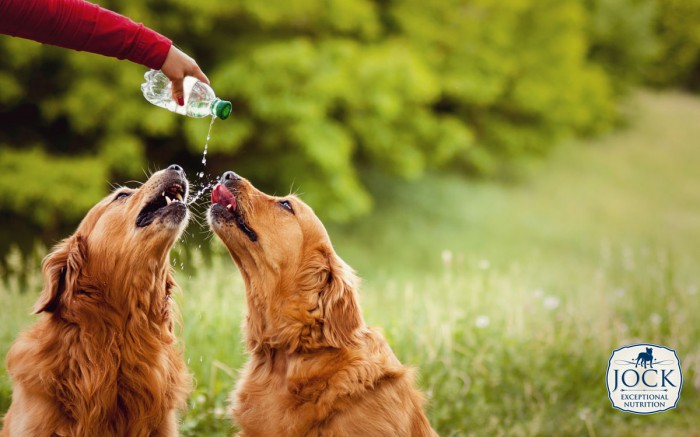Although February marks summer drawing to a close, it is, funnily enough, the hottest month of the season. Unfortunately the soaring temperatures mean that, like us, our furry family is at risk of developing dehydration, if we’re not careful. We spoke to our resident expert vet, Dr. Ockert Botha, to find out what the symptoms of dehydration in dogs are, how to treat them and what you should do in case of emergencies.
Symptoms of dog dehydration
About 80% of your dog’s body is made up of water. Dehydration sets in when this level drops below normal, either due to your dog not drinking enough water or losing too much bodily fluid. The early warning signs of the condition include a dry mouth, gums or nose, sunken eyes, slowed pace/lethargy and excessive panting.
More serious symptoms include a loss of skin elasticity and delayed capillary refilling. You can test for the former by pinching the skin on your dog’s back. If it does not return to normal within 1-2 seconds, your dog might be dehydrated. To test for capillary refill time, simply press on your dog’s gum until it turns white. Remove your finger and see how long it takes before their gum returns to its normal pink colour. If it takes too long, this could indicate dehydration.
Critical symptoms of dehydration in your dog include weakness in the hind quarters or being wobbly or unstable on their feet.
What you should do
Should you suspect dehydration, it is best to not let your dog drink too much water too quickly. This could cause them to vomit and lose even more fluid. Give them small sips at regular intervals to ease fluids back into their system. You can also feed them an electrolyte solution to replace lost nutrients more quickly.
In the event of serious dehydration, a sick dog might find it difficult to drink, or drink enough to correct the condition. Should this happen, you need to take them to a vet immediately, because they will require fluids to be administered intravenously. Your vet will also be able to run tests to see if your dog’s dehydration has a more serious cause.
Preventing dehydration in dogs
To keep dehydration at bay, make sure your dog always has access to lots of clean, fresh drinking water. This is especially important with older dogs, pregnant dogs, nursing puppies and dogs with medical conditions like diabetes, kidney problems, cancer and infectious diseases.
Also keep a watchful eye on your dog’s water intake. If they are not drinking enough, this could indicate a larger problem. Seek advice from your vet as soon as possible to ensure your dog gets adequate care.
Remember to take extra water with you if you’re taking your dog along on family trips or to exercise. Also check their water bowls regularly to see if your dog didn’t knock them over by accident. This is especially important on hot summer days.


